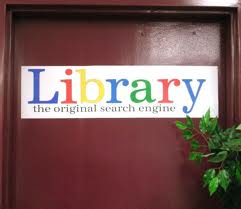
November, 2011
Volume 20, Issue 3
EYES ON THE BOARD
THE LATEST
Board Mtg. 11/28
The Board approved a resolution to authorize the Mexican American Legal Defense and Educational Fund, Inc. to represent MISD in a legal challenge to the current Texas School Finance System, including a new lawsuit and any future and pending lawsuits challenging the System. Cost to the district--free. MALDEF has represented school districts in Texas school finance cases—Edgewood and West Orange Cove cases.
The Board approved a Grant for technology for Travis Middle School. The cost of the IPADs is $200, 643.70.
Region ONE ESC GEAR UP offered $21,080 left over from previous grant to those schools who participated last year. The Board approved.
MISD Board Policy concerning Curriculum Development was approved. Sam Saldivar ask for a report as soon as possible.
The Board also approved the job description for Student Intake Officer. The Board approved the Student Activities Commencement changes.
There will be a special board meeting on December 1, 2011 at 6:30 p.m. at Travis Middle School Cafeteria concerning the purchase of IPADs and IPODs.
Some community members are concerned about jobs--staff cut to pay for IPADs and IPODs.
AREA MEETINGS TLC3
On December 1, January 17, 2012, January 24 and 30 area meetings will be held to discuss the purchase of IPADs and iPODs—$20+ million over 3 years.
A stolen, damaged, or lost IPAD OR IPOD must be reported the next school day. If device is lost or stolen the parent or guardian will be assessed a fee. The parent or guardian must file a police report for lost, stolen, or vandalized devices. When a device is damaged accidentally,
the District will repair or replace the device with a same or similar device. A tracking App will be installed to stop theft/loss.
Public Comment on November 28, 2011
Good evening. My name is Ruth Skow, and I represent the McAllen Federation of Teachers. As you begin the budget process in December, we ask that you think carefully regarding cutting our libraries and librarians.
In the digital age both libraries and librarians are irreplaceable for many reasons. We will discuss the following:
Not everything is available on the internet: The web has essential information but not all of it is accurate.
Digital libraries are not the internet: Online library collections, however, are different. They typically include materials that have been published via rigorous editorial processes and are riddled with quantitative analysis, instead of opinion. Types of materials include books, journals, documents, newspapers, magazines and reports which are digitized, stored, and indexed through a limited-access database.
The internet isn’t free: Numerous academic research papers, journals, and other important materials are virtually inaccessible to someone seeking to pull them off the web for free. Visiting the library in person, or logging in to the library through your school account, is therefore the only way to affordably access necessary archived resources.
The internet compliments libraries, but it doesn’t replace them: There are clear advantages of libraries over the internet for research, however the benefits of the internet, includes “sampling public opinion”, gathering quick facts” and pooling a wide range of ideas. Overall, the point is this: libraries are completely different than the web.
School libraries and librarians improve student test scores: A recent study of the Illinois School of Libraries shows that students who frequently visit well-stocked and well-staffed school libraries end up with higher ACT scores and perform better on reading and writing exams.
Libraries aren’t just books: Technology is integrating itself into the library system, not bulldozing it.
Physical libraries are adapting to cultural change: Our local culture thrives on personal associations at the library. The poor and disadvantaged look at the library and librarians as their friends.
Librarians are the irreplaceable counterparts to web moderators. Our culture requires person to person communication to improve reading and writing. Our parents should be vested in having library cards in their children’s schools. Our parental involvement staff should be seeing to that.
Libraries’ collections employ a well-formulated system of citation. Books and journals found in libraries will have been published under rigorous guidelines of citation and accuracy of web resources. These standards are not imposed on websites.
Libraries can be surprisingly helpful for news archives. Libraries often provide freely accessible issues of major periodicals that would otherwise require online subscriptions. Archives often disappear offline, or become increasing expensive online. This could leave libraries with the only accessible copies.
Thank you.
